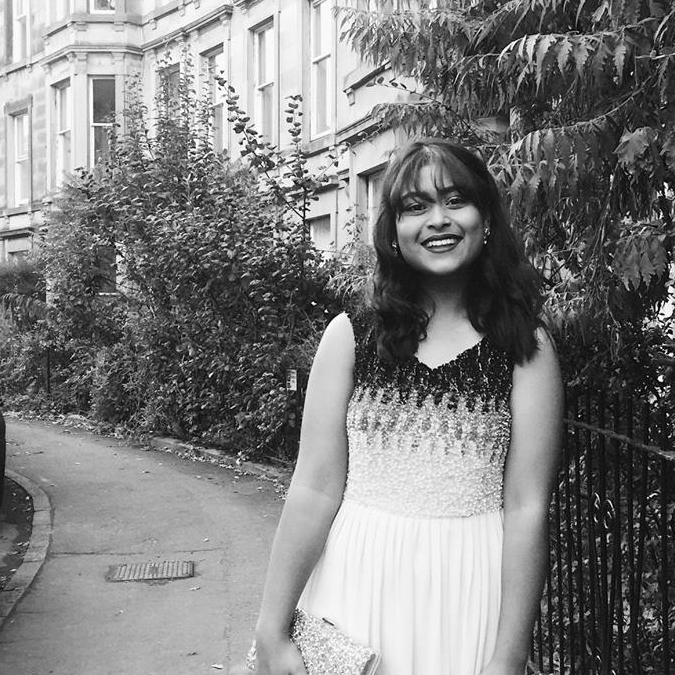Representing the Seven: Simran Piya

On 6 July, seven current medical students from the University of Edinburgh will be accepting a posthumous MBChB degree on behalf of the Edinburgh Seven. We spoke to each of them about the significance of the event and their ambitions for the future.
Simran Piya, Year 3. Originally Kathmandu,Nepal but has lived in Edinburgh for 13 years.
What inspires you about the Edinburgh Seven?
Prior to learning about the Edinburgh Seven, I feel I took the ability to study medicine and get an education for granted. To hear about how these seven women paved the path for us to study this degree and the hardships they faced to fight for women’s rights really inspires me. They fought through the academic pressures and through the social pressures as they were total outcasts from their peers and the staff members. They were pelted with mud and ridiculed by their peers just for wanting to learn and help people. Despite the challenges they faced, they moved forward with determination and established changes globally by putting forward women’s right to education at the forefront of politics.
Why do you think it’s important that the seven are receiving their posthumous degrees?
They were clearly very capable and intelligent women. The only “shortcoming” that prevented them from being acknowledged and receiving a medical degree was their gender. They challenged these inequalities and they are the reason why myself and other female medical students and doctors have the opportunity to study medicine. I am surprised it has taken this long for them to receive a degree – especially as a majority of medical students and university students coming to Edinburgh identify as female.
What do you hope to achieve in your own career?
Women’s right to excel in education and the workplace continues to be topical in the 21st century. For instance, Malala Yousafzai – a young girl who was punished cruelly by her government for just wanting to go to school or by the lack of role models in certain medical specialties like orthopaedic surgery, which has the power to discourage incoming female students to take up jobs in that field continues to delay progression in medicine.
I hope to take forward the legacy that the Edinburgh Seven established and continue to fight for their endeavors by being a positive female role model in a field like cardiology and by volunteering in countries like Nepal where the gender divide in education is still a problematic issue in remote areas of the country.



